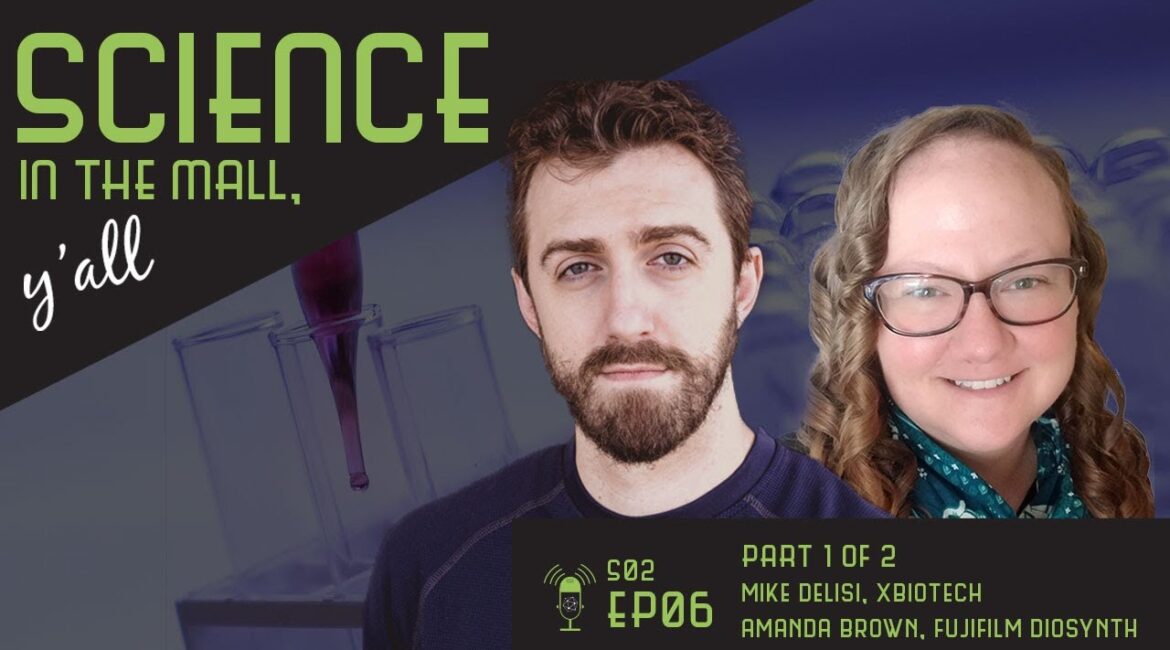[featured-video-plus width=770]



What you’ll hear in this episode:
- The ins and outs of the downstream processing half of medication manufacturing.
- How an ACTA machine works (and what it is) — think vegetable beef soup
- Strategies for successful careers in the biosciences with an associates degree and a generous helping of “soft” skills
- Tips for creating a resume that won’t quit — getting you noticed!
Downstream processing is a critical step in the manufacturing of medication. It’s the second half of the equation after, you guessed it, upstream processing. Once the upstream processing team is finished growing and culturing cells, the downstream folks are ready to begin purifying those cultures and readying them for production.
In this process, the ACTA machine is used to purify and concentrate the biomolecules that have been produced in upstream processing. Don’t worry if you’re unfamiliar with the ACTA machine — they get into it in the podcast episode. For now, just know this machine is essential for ensuring that the final product is safe and effective for patients.
While many people may not be familiar with this process, or the ACTA machine, after listening to this week’s episode of Science in the Mall, Y’all! you’ll have at least a basic understanding of this type of work, and why it’s so critical. But more importantly, you’ll learn why hands-on experience is so beneficial in preparing for a career in bioscience.
In this episode, former ABI interns Mike Delisi and Amanda Brown reunite for a discussion on how they’ve gained both understanding and experience in their bioscience careers.
Amanda, formerly of Fuji Diosynth, and Mike, who works in downstream processing at XBiotech, both earned their 2-year associates degrees from ACC. Before graduation, they both interned at ACC’s Bioscience Incubator at the same time, getting tons of practical, hands-on-experience in the labs there.
In addition to building the technical skills that are crucial to careers in the biosciences, this type of experience builds the peripheral, yet every bit as important, skills of problem-solving, critical thinking, and getting comfortable with messing up. Both Amanda and Mike credit their internships at ABI with helping them to develop these aspects of their professional growth. Attributes which gave them a leg up on competition in the job market.
And entering the job market without a bachelors (or higher) degree, means you’re going to need those other advantages to garner a second look from recruiters. While a bachelors degree may be the “requirement” that many employers are looking for, Amanda and Mike were both able to secure jobs in their field with their associates degrees — and real-life lab experiences. This is in large part thanks to the experience they gained during their internships at ACC’s Bioscience Incubator.
Having found fulfilling careers in the biosciences without the comparative advantages the higher degrees afford, Amanda and Mike have some great advice for securing interviews even if you don’t meet the company’s “requirements,” and creating a resume that will have hiring managers doing double takes.
So, those of you without an array of letters behind your name who still have a passion for the biosciences and a desire to progress in a career in them, take heart. If you take the time to develop your soft skills and gather as many experiences as you can, you might find that a lot of company’s “hard” requirements are actually kind of “soft.”
This is the first episode in Amanda and Mike’s two-part discussion. Listen to the full episode to learn more about ACC’s Bioscience Incubator, the value of hands-on-experience, and vegetable beef soup. Amanda will have to explain that one.
And don’t forget to tune back in for part 2!
Science In the Mall, Y’all is a founding_media podcast created in partnership with the ACC Bioscience Incubator.
Host: Dan Dillard, founding_media
Guests: Nancy Lyon, ACC Bioscience Incubator Director
Amanda Brown, former ABI Intern and QC/QA at National Resilience
Mike Delisi, Former ABI Intern and Downstream Processing at XBiotech




